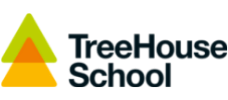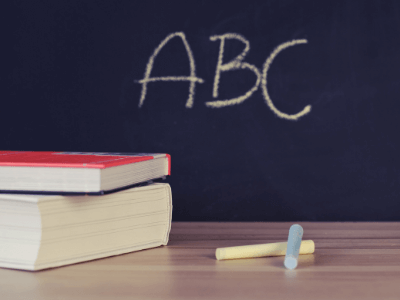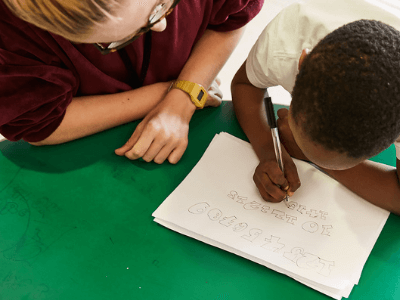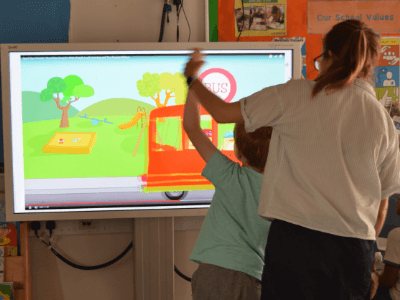All pupils at Treehouse school have a diagnosis of autism and an Education, Health, and Care (EHC) plan that outlines the outcomes that are to be achieved at the end of each Key Stage.
Treehouse pupils require at least 1:1 support for learning in order to access the curriculum. Pupils have a wide range of needs ranging from those who benefit from a more sensory-based curriculum to others who can access aspects of the National Curriculum for some specific subjects but may need intensive support to help them self-regulate.
Pupils with autism do not learn in the same way as their peers. They may learn more quickly in some areas than others, whilst finding some skills much more challenging such as communication and/or emotional regulation. This is often referred to as a “spiky profile.”
We offer three different curriculum pathways to our pupils, and they follow the curriculum that is most appropriate to their needs. The pathways are not sequential, neither are they linked to chronological age. The pupil follows the pathway that meets their developmental needs rather than age. For example, a 6-year-old pupil could be in a formal class whilst a 15-year-old pupil may be in a pre-formal class. Treehouse school has pre-formal, semiformal, and formal pathways for all age groups, including the sixth form:
Pre-formal: A sensory-based curriculum with an emphasis on engagement and early development.
Semi-formal: For students who can access learning through subjects, although not yet at National Curriculum level.
Formal: Subject-specific study is undertaken (some of which is at National Curriculum level) and entry-level qualifications are achieved where appropriate from KS4.
While it is not uncommon for pupils to remain within the same pathway throughout their time at TreeHouse School (particularly for secondary students), there will be pupils who, at some point, the transition from the pre-formal pathway onto the semi-formal pathway, or vice-versa. For this reason, each curriculum pathway has elements that overlap and are embedded into each other to allow easy transition. The assessment framework for each pathway overlaps at the start and end, allowing for accurate assessment for pupils who transition between two pathways.
The Ambitious Approach
TreeHouse School’s three innovative curriculum pathways have been carefully designed to meet everyone’s learning needs. The starting point for all pupils is the Ambitious Approach.
The Ambitious Approach is a value-driven individualised approach to improving quality of life in an environment that understands behaviour and promotes measurable outcomes for children and young people. One of the key elements is the School-Wide Positive Behaviour Support (SW-PBS).
PBS (Positive Behaviour Support) is a person-centred framework for providing long term support for pupils with autism who have, or may be at risk of developing, behaviours that challenge.
It is a blend of person-centred values and behavioural science and uses evidence to inform decision-making. PBS approaches are based on a set of overarching values. These values include the commitment to providing support that promotes inclusion, choice, participation and equality of opportunity and above all, looks to improve the quality of life for the individual.
This approach means that each individual pupil is placed at the heart of their own personalised curriculum, designed around their strengths, needs and interests. The Ambitious Approach advocates for and delivers learning that is enjoyable, age-appropriate, individualised and designed to respond to the needs, talents and interests of all pupils.
Find out more about our Ambitious Approach.
TreeHouse School curriculum aims
We strive to support pupils to be happy and have a good quality of life. We want them to know more, understand more and provide them with the tools they need to self-regulate their emotions whilst being as independent as possible.
The TreeHouse School curriculum identifies three quality of life aims which are addressed by the three curriculum pathways.
The three quality of life aims are:
- Wellbeing
- Independence
- Social participation
These are divided into the strands illustrated below:
| Wellbeing | Independence |
Social participation |
| Emotional wellbeing |
Independent living |
Community inclusion |
| Physical wellbeing |
Rights and responsibilities |
Interpersonal relations |
| Personal development |
Employment |
|
|
Material wellbeing |
An INTENT document for each curriculum area in each pathway maps the learning intentions to this quality of life model to ensure that all learning follows the Ambitious Approach.
Equal opportunities and Inclusion
The ethos of the Ambitious Approach is that each child has an equal right to an outstanding education that is tailor-made for them. We carefully review, through our provision maps, learning activities that facilitate the child achieving their EHC plan outcomes and other curricular learning objectives. Community visits/ experiences are available to all, whatever their starting point irrespective of their individual self-regulation needs. This is addressed through robust and rigorous risk assessments that keep everyone safe.
Literacy and Mathematics
The development of Literacy and Mathematics skills are essential for all pupils; hence they are addressed through all three curriculum pathways. On the pre-formal pathway, Literacy and Mathematics are embedded through a sensory-based curriculum within the areas of communication and language, PSED, and physical development. This approach enables pupils TreeHouse experience to remain fully appropriate to their needs yet equips them with the pre-requisite skills and understanding should they progress onto the semi-formal curriculum pathway.
On the semi-formal curriculum pathway, pupils continue to develop the skills needed for reading, writing and Maths. Pupils work through our subject-specific programmes of study which ensure appropriate curriculum coverage for pupils on this pathway. The Literacy and four Mathematics programmes of study begin where the pre-formal pathway ends, and the content progresses through to the level of a mainstream year 1 curriculum (TreeHouse Band 1), which is the point at which pupils would transition onto the formal curriculum pathway.
The formal pathway is where English and Maths are taught as subject-specific lessons to pupils working at a level where they can access aspects of the national curriculum. As a result, pupils on this pathway will be assessed against the appropriate areas of the national curriculum programme of study from KS1–KS4, the teacher will then be able to identify the priority areas of need within their class.
Reading is a key area for semi-formal and formal pupils. The Intent document for reading explains the school’s approach to teaching reading and how progress is measured for each pupil. The school have appointed a lead for Communication, Language and Literacy who ensures that the teaching of reading has a high priority within the school.
When a pupil reaches the sixth form, Literacy and Mathematics are embedded in the Preparing for Adulthood pathways which make up the sixth form curriculum. Key vocabulary is reinforced throughout the day. Staff take every opportunity to increase pupils’ comprehension of new concepts and words within naturally occurring environments and during lessons.
Transition and Preparing for Adulthood
Moving to a new school, then changing classrooms and teachers each year is especially hard if you find change difficult, as many autistic people do. Transition work forms part of the curriculum offer at TreeHouse School to support pupils when change happens. This support is provided by teachers, behaviour analysts and the teaching and behaviour support team (TABS). An additional focus is a daily act of transitioning from home to school, from classroom to another area in the school which may also be a challenge to some pupils.
Although the Preparing for Adulthood framework is a particular curricular focus in the sixth form, its foundations are developed as soon as the pupil starts school. This means that everyone is working towards the key skills that pupils with autism need to function well and happily in adulthood. This work is preparation for leaving TreeHouse School and moving to a new placement, whether this be Ambitious College or another setting.
The Sixth Form curriculum
The sixth form curriculum is based on the SEND Preparing for Adulthood outcomes. The Pathways to Adulthood curriculum is designed to meet the needs of individual pupils through practical activities that will enable them to increase their independence. The programme incorporates individual learning objectives that link to pupil’s EHC plan outcomes and the Preparing for Adulthood curriculum. The sixth form curriculum has an embedded approach to English and Maths to make learning meaningful and contextualised, as appropriate to each student's ability and aspirations. There are four pathways that are included in the curriculum:
- Work-related learning & enterprise
- Independent living
- Friends, relationships and community
- Health and well being
Pupils working at the pre-formal stage continue to develop their skills through TreeHouse experiences linked to the pathways to adulthood themes. Pupils assessed at semi-formal and formal levels, follow the pathways to adulthood study programmes. This framework covers the four pathways, as well as PSHE, functional English and Maths and a focus on transition.
British values
All schools are expected to uphold British values and make the teaching of the values part of their curriculum offer. At TreeHouse School we teach pupils about the five values that are encompassed under the British Values framework.
- Democracy
- The rule of law
- Individual liberty
- Mutual respect
- Tolerance of those of different faiths and beliefs.
TreeHouse School has adapted and broken down these values to make them accessible to all pupils at their own particular developmental level. The bespoke Quality of Life Curriculum ensures that all of the areas are addressed. The PSHE curriculum (September 2020) is adapted and made relevant to the school’s cohort so that the learning objectives and activities are meaningful and link to transition to the next steps of learning.
Cultural capital
At TreeHouse School we develop our pupils’ cultural capital by taking advantage of London’s rich cultural diversity, enabling the children to access a wide variety of experiences through community visits and access to the arts including music, drama and literature. We celebrate our similarities and differences through cultural and religious celebrations by inviting in visitors, holding festivals and celebratory assemblies. We believe the wider the cultural capital that is experienced the more opportunity to improve a child or young person’s quality of life.



